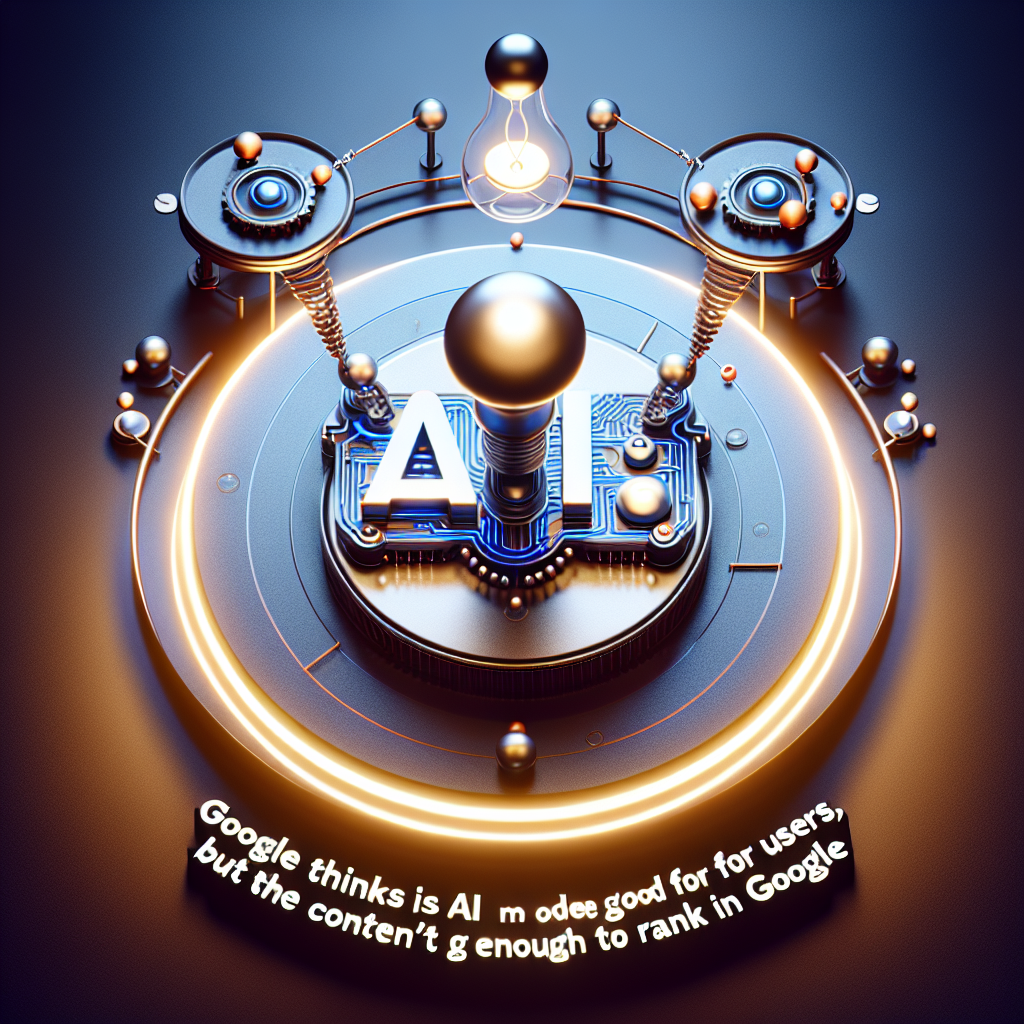Why Google's AI Mode Content Isn't Ranking on the Search Engine
In the evolving landscape of search, Google believes in the potential of AI Mode to enhance user experience. However, recent tests reveal a paradox: while AI Mode is anticipated to become a default search feature, its generated content struggles to rank in traditional search results. This article explores why AI-created content isn't securing spots on Google's search pages despite its informative nature.The Test Setup: Exploring AI Content's Ranking Potential
To test Google's ability to rank AI-generated content, three pages were published on the Ahrefs blog, leveraging its strong domain rating and SEO-centric content history. The focus was on two existing topics—"hreflang" and "technical SEO"—and one new topic, "crawled - currently not indexed." Despite providing decent summaries, these pages did not rank well, suggesting inherent limitations in AI-generated content's competitiveness.Analyzing the Results: AI Content vs. Traditional Content
The generated content showed limited success in ranking, with none of the test pages achieving significant visibility. Interestingly, an older Ahrefs page about a related topic, which lacked the focus keywords, ranked higher than the newly created, more relevant AI pages. This discrepancy raises questions about Google's content evaluation methods and whether they inherently disadvantage AI-generated material.Potential Reasons Behind the Ranking Discrepancy
The inability of AI-generated content to rank may stem from several factors. It raises the question of whether Google has systems, such as information gain or AI content detection, that limit the ranking potential of these automated outputs. Additionally, the static nature of AI content, which might lack fresh insights, could contribute to lower ranking potential compared to dynamic and novel human-written content.Moving Forward: Combining AI with Human Elements
Recognizing the limitations of pure AI content, the author proposed the integration of human elements into these pages, aiming to enhance their competitiveness. Tests indicated that when AI content was supplemented with human insights, the pages performed better, suggesting a hybrid approach may be an effective strategy for future content development in a competitive SEO landscape. The ongoing evolution of AI tools presents exciting opportunities and challenges for content creators and SEO professionals. As AI Mode becomes more advanced, continuous experimentation and adaptation will be key to understanding its role in the broader search ecosystem. By leveraging both AI and human creativity, content creators can aim to produce insightful and engaging content that resonates well within search algorithms and user expectations. Quick Tip: Always consider blending automated content with unique human insights to increase the chances of securing higher search rankings. ```
